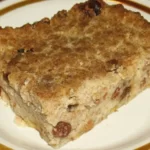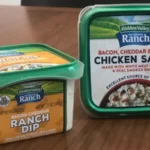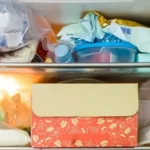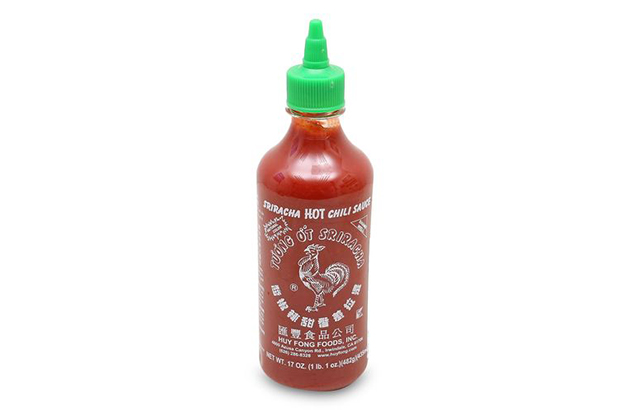
One of the most consumed hot sauces worldwide is Sriracha. Most likely, you have one in your cabinet right now. It’s no secret that Sriracha can improve any savory breakfast dish, from scrambled eggs to breakfast burritos to bloody marys. But is that the best location for it?
Does sriracha need to be refrigerated? The quick answer is no, Sriracha does not need to be refrigerated, but there are some considerations to make that will help you understand Sriracha and other hot sauces as well.
Please read on for more detailed information.
Table of Contents
What Is Sriracha Sauce?
The origin of Sriracha is Thailand, where it has a lengthy and illustrious history.
The hot chili peppers, garlic, salt, vinegar, and sugar are all combined in this sauce with a chili base.
Because of its striking red color, Sriracha is difficult to miss.
A little vinegar tang, sweet flavors, and heat are all things you can anticipate tasting.
Why Does Sriracha Sauce Not Need To Be Refrigerated?
Due to its ingredients, which include several natural preservatives that are resistant to bacteria, Sriracha Sauce does not need to be refrigerated.
Additionally, bacterial growth frequently causes food to spoil.
Since distilled vinegar and chili peppers both have potent antimicrobial properties, they work together in Sriracha to inhibit the growth of bacteria.
What Are The Ingredients In Sriracha?
Sriracha is fairly easy to make. Here’s a full Sriracha ingredients breakdown, but in short, it contains red jalapeño, garlic, vinegar, sugar, and salt, along with thickening agents and preservatives. Due to its simplicity, that hot sauce can be stored in a cupboard unopened for months or even years at a time. Sriracha doesn’t require refrigeration, so.
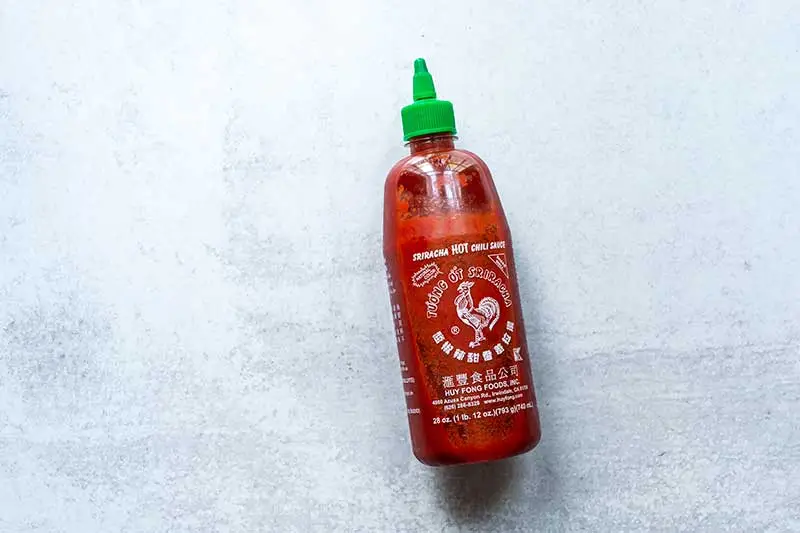
How Long Does Sriracha Last?
Sriracha has a fairly long shelf life. Purchasing a bottle of sriracha is incredibly cost-effective, even if you are someone who uses it infrequently but still enjoys using it as a topping option when having dinner.
The best-by date printed on the bottle determines how long this chili sauce will stay fresh.
But as we’ve all come to realize, this time is merely an estimate of how long the product will retain its best features. Throw away the sauce as soon as it has passed its best-by date if you never go past the printed date.
However, if you don’t properly store the product, this date is meaningless. In light of this, it is important to always store Sriracha in accordance with the aforementioned storage guidelines, regardless of the date on the packaging.
Preservatives are present in store-bought Sriracha sauce. These increase the condiment’s shelf life. An unopened bottle of sriracha lasts up to 24 months past the printed date.
If the expiration date on a bottle of Sriracha has passed, carefully check the contents to see if it is still safe to eat.
An opened bottle of sriracha has a shelf life of 24 months if stored in the refrigerator, in a tightly sealed bottle. When stored in the pantry, an opened bottle of sriracha will be good for around 9 months.
In order to prevent the flavor and intensity of the sauce from deteriorating, transfer the original bottle of sriracha into a new container that you can seal tightly.
Does Sriracha Go Bad?
Since salt, vinegar, and chili peppers are all naturally occurring preservatives, Sriracha hot sauce doesn’t spoil easily. In spite of the fact that the sauce has a date on the bottle, it typically lasts months after that date.
However, Sriracha gradually loses flavor over time, and eventually you might become dissatisfied with its taste. Sadly, there is no way to predict with certainty when that will occur.
Knowing that Huy Fong Foods’ Sriracha is made with naturally grown chili peppers is important in terms of quality. Therefore, it’s possible that some bottles will be a little hotter than others and that the color will also differ slightly.
However, this does not imply that Sriracha cannot degrade. The condiment may spoil if stored for a long period of time or in unfavorable conditions. Let’s discuss what that might resemble.
Sriracha Darkening
It’s not a sign of spoiled Sriracha if it turns a darker shade of red (or browns). The majority of hot sauces, including, for example, develop a similar aging process as chili peppers do., Tabasco.
The darkening process is entirely natural (I went into more detail about it in my hot sauce article), and it doesn’t significantly detract from the sauce’s quality. Sure, its flavor might be a little bit different, but that’s about it.
When Does Homemade Sriracha Go Bad?
The shelf life of homemade sriracha sauce is inevitably shorter because it lacks additional preservatives.
Although the vinegar serves as a natural preservative, it is advised to keep homemade sriracha in the refrigerator. Homemade sriracha will last around 4 to 6 months.

How To Recognize Bad Sriracha?
Sriracha doesn’t typically go bad. Most frequently, the sauce goes bad because it stops adding flavor to the dish and becomes flavorless.
However, this does not rule out the possibility of sriracha spoilage. You will undoubtedly notice the symptoms of bad sriracha if it is left somewhere hot and muggy.
An example of spoiled Sriracha is:
- presence of any organic growth, including mold. Although moldy Sriracha is uncommon, if yours is, it needs to be discarded.
- Off aroma. If your Sriracha smells rotten or fermented instead of the typical spicy-savory aroma, throw it away.
- extreme texture change The sauce will be lost if it completely separates or stops pouring.
- Bad taste. Try eating a little bit if everything appears to be fine. Your Sriracha will be fine in almost all situations. However, it should be discarded if the flavor is subpar or it simply tastes bad.
Additionally, exercise common sense when deciding whether to use the condiment.
It is probably best to throw away Sriracha if it is already 4 or 5 years past its best-by date. The same applies if your partially opened bottle has been in the pantry for two years.
Or to put it another way, err on the side of caution.
As you can see, I didn’t say that if your Sriracha turns dark red or even brown, it’s bad. This is due to the fact that for this hot sauce, darkening is not a sign of spoilage.
Can Sriracha Be Left Unrefrigerated?
Sriracha should not be kept in the refrigerator if it is still sealed, as we have already mentioned. Surprisingly enough, you don’t need to refrigerate an opened bottle of sriracha either.
It can be kept somewhere dry, dark, and most importantly, cool, like the pantry or a kitchen cupboard.
Only in extremely hot climates where it is impossible to find a room with a comfortable temperature should Sriracha be kept out of the fridge.
Additionally, if you plan to keep the sauce out of the fridge, make sure the storage space maintains a constant temperature. Otherwise, the sauce’s quality will drop off very quickly.
Editor’s Tips: Ghee is a type of clarified butter made from cow or buffalo milk that is primarily used in India, but does ghee need to be refrigerated?
What Happens If Sriracha Isn’t Refrigerated?
Hot sauce generally has an ingredient list that does well to fight against harmful bacteria. Because there are only a few ingredients in plain Sriracha, its high PH level inhibits the growth of bacteria, making it safe to store unrefrigerated.
If they contain things like egg or dairy or any other complex ingredients that easily host bacteria, hot sauces with more ingredients, like Sriracha mayo, might need to be refrigerated.
Regardless of where it is kept, sriracha may begin to turn brown. This doesn’t mean it’s spoiled, though. Hot sauces naturally darken over time as a result of the maturation of chili peppers.
Your Sriracha will only experience a flavor change and lose some of its potency. That simply happens with any spice or sauce on occasion. The ingredients lose their ability to deliver the punch we seek when consuming a bite of hot sauce as it is stored for a longer period of time.
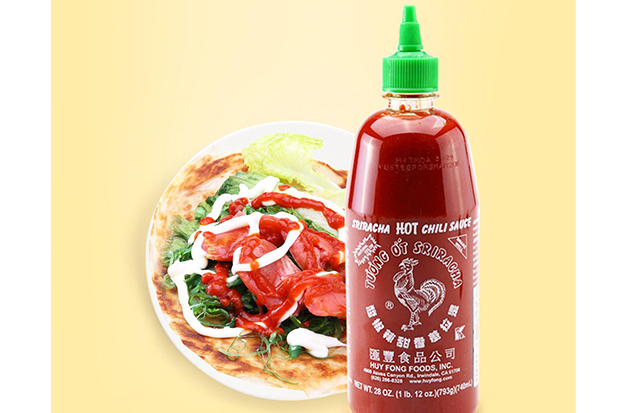
How Long Does Sriracha Last After Opening?
Sriracha has a long shelf life and is good for months even after its expiration date. It can be preserved for a few years inside your refrigerator and for almost the same length of time outside.
For about six months at room temperature and one year in the refrigerator, Sriracha will maintain its peak quality. After that, it’s up to you to decide whether or not your Sriracha needs to be thrown away.
Your Sriracha is probably safe to eat as long as you don’t find any mold or other growth, and as long as the flavor and texture haven’t changed noticeably or turned foul. However, you might discover that the quality has declined.
The preservative properties of the ingredients will keep your Sriracha technically good if you’ve had it open for two or three years, but the flavor will have changed. You’d be better off getting a new bottle at this point.
How Long is Unopened Sriracha Good For?
Unopened Sriracha can safely last 2 or more years past the “best by” date on the bottle. For the best results, store your unopened Sriracha in a cool, dry location like a pantry or cabinet. Although it doesn’t last forever, sriracha can last a very long time if stored properly.
The ability of your Sriracha to last a long time may be impacted if the container is damaged when you purchase it. Always check the container for dents and cracks. Because Sriracha is fermented, keep in mind that opening the container could result in a pop due to pressure buildup.
Old Sriracha: Is It Harmful?
Even when it is of the highest quality, Sriracha, like any hot sauce or spice, can upset the stomach of those with sensitive tummies. Capsaicin, the chemical that gives red jalapeno peppers their heat, can be found in the red jalapeno peppers used in Sriracha. This ingredient causes stringing in the mouth or nose for many people, but for some with sensitive stomach linings, it can make things worse.
You might feel queasy or heartburn after consuming Sriracha. A glass of milk may help to alleviate the symptoms if you experience them but still keep eating the delicious hot sauce.
However, if someone who already had sensitivities ate a batch of Sriracha that had been around for a while, these effects might get a little worse. Consuming old Sriracha is still not particularly dangerous, but it should be avoided.
Naturally, discard your Sriracha as soon as you notice mold growing on it. There’s no reason to eat anything that exhibits signs of bacterial growth, even though doing so probably won’t cause you to die. Additionally, it won’t taste particularly good.
You should avoid consuming Sriracha that has been on the market for a while if it has other warning signs, such as an extremely sour smell or a chunky, separated texture. Will you become ill from it? You don’t have to find out, but it’s not necessary.
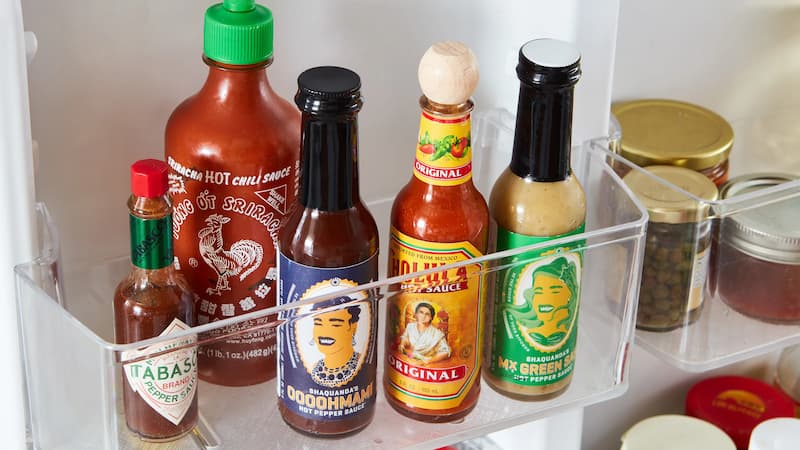
How To Store Sriracha?
You might be wondering how to store this hot sauce properly for the longest shelf life and best flavor if you’ve been using it but haven’t tried it before.
In a word, you should store a bottle of sriracha like the rest of your condiments, either in the fridge or in the pantry.
Sriracha should not be refrigerated if it is still in its sealed bottle. Thanks to the airtight packaging and the preservatives in the sauce, sriracha is shelf-stable. Three guidelines should be followed in light of this.
Firstly, you should keep the bottle of sriracha away from heat. Keep it away from heat sources like the stovetop and the oven as well as direct sunlight.
Secondly, keep it somewhere dark, away from light. Sriracha is sold in clear bottles. Natural light will quickly pierce it and damage it.
And lastly, make sure to store the condiment in a room where the temperature doesn’t fluctuate. The sauce can definitely be stored in a cabinet.
The sauce should not be kept near a stove, though, as the steam from cooking causes temperature changes that eventually cause the sauce to spoil earlier than it should.
Therefore, store any unopened bottles of Sriracha in a cabinet, pantry, or other cool, dry, and dark location. Sriracha that has been opened can be kept in the refrigerator. Make sure to tightly seal the cap after each use.
Can Sriracha Be Preserved Longer?
Sriracha already has a short shelf life; there is no way to extend it further. The alternative is always an option, though. Understanding what you can do to extend this sauce’s shelf life and improve its storage is crucial.
To begin with, dispense the necessary quantity of sriracha into a small bowl whenever you use it as a dipping sauce. Wherever you have been keeping the bottle, put it back there.
The rule to follow at all times is that you should never put the leftover sauce back into the bottle. This could introduce food crumbs into the sauce.
These will speed up the sauce’s deterioration in addition to introducing hints of other flavors.
Another thing you can do to keep the flavor of sriracha at its best is to always clean the tip of the bottle. Leftover sauce usually makes it crusty.
To avoid the dried bits contaminating the sauce and changing its texture, remove the dried sauce from the cap.
Can Sriracha Be Frozen To Extend Its Shelf Life?
The best storage method for many products that extends their shelf life is freezing. So, can sriracha be frozen? Sriracha can be frozen without risk. You should also consider whether you actually need to after this, though.
Sriracha keeps well enough in the fridge and even the pantry without needing to be frozen. Sriracha will thin out when frozen and defrosted, losing some of its flavor and heat while changing its consistency.
You should also take the sauce out of the freezer in advance and allow it to thaw because you never know when you’ll feel like putting a splash of sriracha on your food.
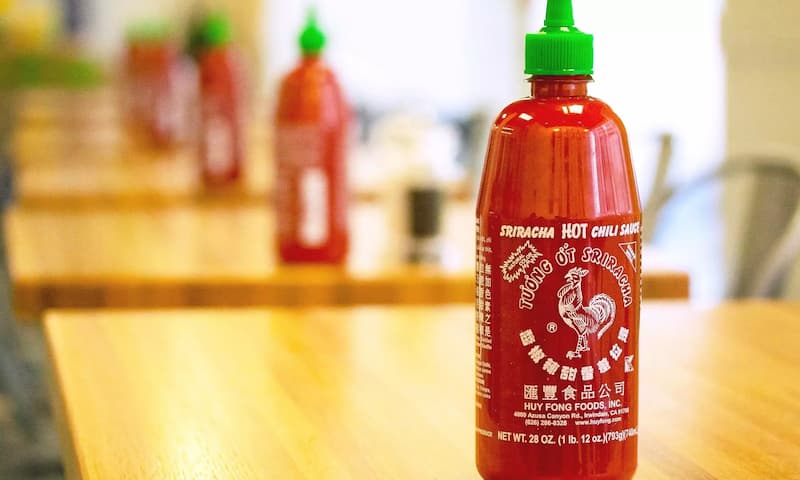
FAQs
Should Sriracha Be Refrigerated?
Even after opening the bottle, Sriracha doesn’t require refrigeration. The reason for this is that the condiment’s ingredients don’t quickly go bad and don’t support bacterial growth. It should be kept in a cool, dry location.
In other words, Sriracha isn’t your typical salsa that always needs to be refrigerated after opening.
Having said that, Sriracha benefits from refrigeration just like most hot sauces do. It will retain flavor longer if you keep it in the refrigerator because it won’t darken as quickly.
The bottom line is that open Sriracha can be kept at room temperature for a few months if you plan to finish the bottle. It’s better to refrigerate it if you plan to keep it in storage for longer than six months, though.
Can I Make Sriracha at Home?
Yes, although the recipes you’ll find might differ slightly. By only making what you need when making homemade Sriracha, you can prevent spoilage. For flavor variations, you can also experiment with various ingredients.
Is Sriracha Vegan? Gluten-Free?
We’re happy to inform you. The vast majority of brands are vegan. They are also free of gluten!
Sriracha is gluten-free. Chili, sugar, seasoning, vinegar, and preservatives are common Sriracha ingredients. All of these are free of gluten, barley, or wheat. Huy Fong and Lee Kum Kee Sriracha are two of the most well-known Sriracha brands. Noble Made Sriracha Tahini Salad Dressing and Yellowbird Blue Agave Sriracha are two healthier gluten-free substitutes for Sriracha.
Is It OK to Eat Expired Sriracha?
Like other hot sauces, expired Sriracha can make you sick, but don’t worry too much. Typically, having a small amount of mold or yeast in your digestive system only causes an upset stomach.
You might be able to use it up in a few months if you only use it once a week or if you always have bottled hot sauce on hand. Tabasco, Sriracha, Louisiana-style, and other hot sauces are frequently seen. Use only a jar that is not broken, leaky, or unusually full. The oxidation process is accelerated when exposed to air and moisture, giving the material a darker appearance. If you see black spots or mold (other than chili seeds), it’s time to say goodbye.
A product’s preparation, formulation, storage conditions, and shelf life all have a significant impact. However, if you intend to keep hot sauce chilled, make sure it is chilled properly.
Should You Refrigerate Hot Sauce?
Yes. In fact, some hot sauces, like Tabasco, change color over time if they aren’t kept chilled. The best way to avoid this color change in your hot sauce is to keep it in the refrigerator. Your bottle of Tabasco still has five years to live if the color hasn’t darkened. However, if you care about the color of your hot sauce, put that bottle in the refrigerator.
In order to maintain the long-term quality, you should also store your hot sauce in the refrigerator. Even if it hasn’t technically gone bad, the five-year-old hot sauce you’ve kept on the kitchen shelf will taste stale.
Additionally, some hot sauces have a shorter shelf life than others. As a result, examine the bottle’s packaging to determine which option is best for your needs and those of your hot sauce. And if in doubt, just start sprinkling hot sauce on everything to finish that bottle as quickly as you can and eliminate any concerns about it going bad. So, there you have it—my method of storing hot sauce.
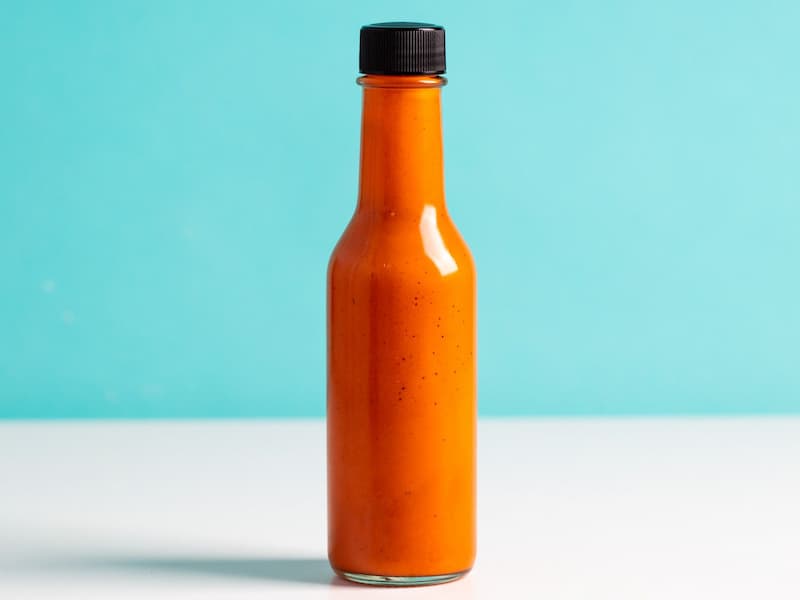
How To Store Hot Sauce After Opening?
When in doubt, Tamika Sims, PhD, senior director of food technology communications at the International Food Information Council, advises keeping hot sauce in the refrigerator after opening. (Most hot sauce can be kept in a kitchen cabinet or pantry before opening.) However, the bottle will usually specify whether you need to refrigerate your hot sauce. “If this type of language is absent from the bottle, it is likely that refrigeration is not needed,” says Sims. The U.S. Food and Drug Administration advises adhering to label instructions to ensure the highest quality and safety of food, as proper storage of all foods, beverages, and condiments will help to give the anticipated taste, color, texture, and safety of perishable items.
Is The Hot Sauce You Possess Safe To Eat?
The hot sauce should be thrown away if it has changed texture, has an unusual color, or has an unpleasant odor. These are all indications that it has gone bad. Sims advises always exercising caution. “It is best to throw out food if you are unsure whether it has gone bad.”
Does Soy Sauce Need to Be Refrigerated?
The short answer is that, in the majority of cases, soy sauce does not require refrigeration.
The fact that fermented foods like fish sauce and miso can technically be left out at room temperature for a while without going bad is one of their coolest qualities. The food’s resident microorganisms do more than just add flavor; they also aid in food preservation.
A paste of fermented soybeans, roasted grains, brine (also known as saltwater), and a mold called kji are used to make soy sauce. The months-long process involves brewing the salty brown liquid at room temperature for considerable amounts of time. Therefore, no, it is not required to be placed in your refrigerator. It won’t spoil at room temperature (remember the packets you get with your Chinese takeout—they’re not usually cold). With some restrictions, it might taste different but it won’t spoil.
Soy sauce can be stored outside of the refrigerator for up to one year after opening and can last for up to two or three years (practically forever) when it is still sealed. However, to keep the savory, delicious flavor of that soy sauce, you should probably make room among your other refrigerated condiments if a bottle lasts longer than that in your home.
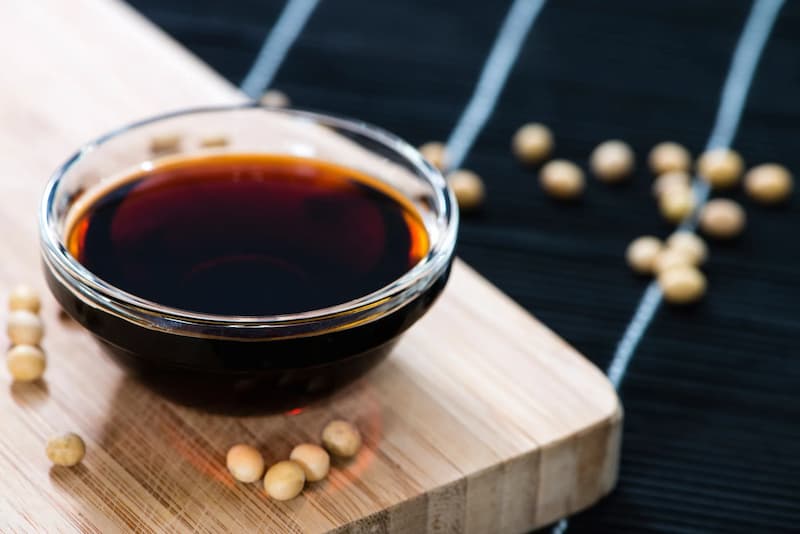
Does Ketchup Need to Be Refrigerated?
The argument is as old as, well, ketchup. The argument that restaurants leave communal ketchup bottles out on tables for hours comes from those who maintain their ketchup at room temperature, who claim they have probably never gotten sick from doing so. Refer to the directions on the bottle itself if you keep yours cold.
It really depends on the quality of your ketchup and your preferences, but at the end of the day, refrigerating ketchup (and pretty much anything) will extend its shelf-life. Unopened ketchup keeps for a year in the pantry, but once it’s been accidentally exposed to air and opened, the quality will start to decline if it isn’t refrigerated. The Institute of Agriculture and Natural Resources at the University of Nebraska-Lincoln claims that an opened bottle of ketchup can last for up to six months if kept chilled. However, after being opened for only four weeks, its quality might start to decline. Oh, and if you’re still wondering about restaurant ketchup, they go through those table bottles way faster than one family or person would. But they’re also filling those bottles for single-day use from a massive bulk container of ketchup that’s kept—gasp—in the refrigerator.
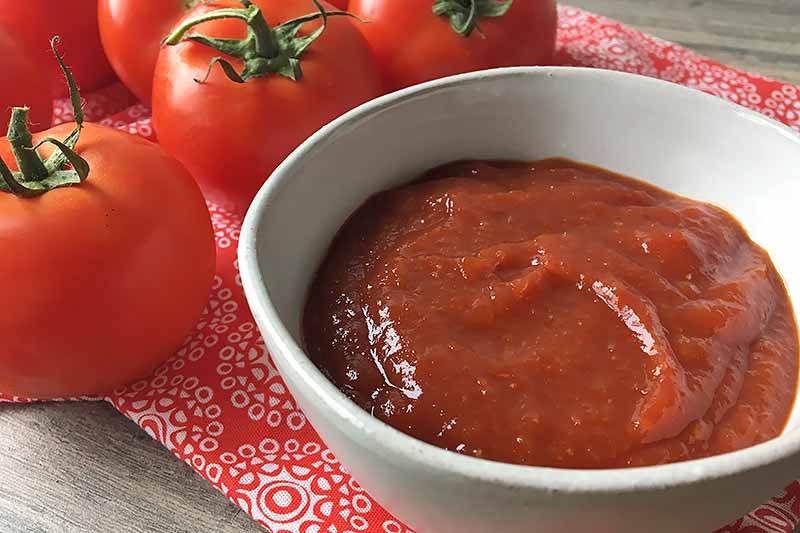
Conclusion
There is a best-by date on the label, but that is only a general indication of how long the sauce will stay fresh. The focus is on quality rather than safety, and there is no “expiration date” for the product.
Almost all hot sauces continue to be effective for months after their expiration date. Additionally, Sriracha lasts at least as long as comparable condiments because it has a similar amount of vinegar in it.

